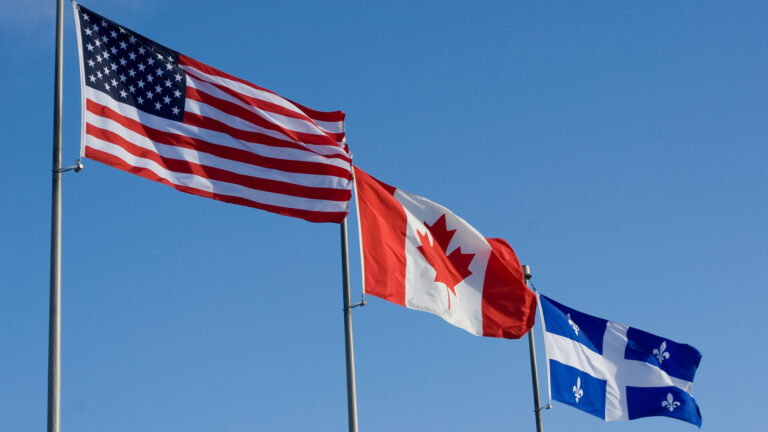Canadians are not generally sore losers, but the 2021 general election has produced a long tail of speculation about why certain ridings voted the way they did – but shouldn’t have. The latest is from two McGill academics in a recent Policy Options article, Misinformation and Chinese interference in Canada’s affairs. Sze-Fung Lee and Benjamin Fung claim that Kenny Chiu, a Conservative candidate in Steveston-Richmond East in B.C., was the target of a disinformation campaign via social media posts about a private member’s bill he proposed that did not get approved before the September federal election.
The Globe and Mail reported on the Lee and Fung article and questioned whether the campaign had cost him the election.
Neither the Globe nor Lee and Fung pointed to a “smoking gun” connecting Beijing to what happened in the Greater Vancouver riding, whose population is about 50 per cent ethnic Chinese. But both share the view that, in the words of Lee and Fung, “whoever was responsible for disseminating the fake news had a clear motive in reshaping the narratives in favour of Beijing’s interests.”
But was it disinformation – in the sense of false information that is intended to mislead – or legitimate debate within the Chinese-Canadian community?
Chiu’s Bill C-282, the Foreign Influence Registry Act, would have set up a registry for people or entities who contacted Canadian politicians or senior federal public officials in cases where they were or could be perceived to be acting on behalf of certain foreign governments or entities.
As Tarun Krishnakumar noted last July in a Policy Options article: “C-282 is also limited in that it only applies to agents acting on behalf of principals located in countries specifically designated by the Canadian government. In other words, it does not apply to foreign influence writ large. While politically expedient, this is problematic from a broader policy perspective as it opens up the framework to claims that it is discriminatory and unfairly targeted at certain countries.”
Lee and Fung don’t demonstrate the falsity of the social media posts they deem to be problematic but have instead taken at face value Chiu’s belief that he was the victim of disinformation.
One WeChat post that Chiu cited as misleading claims that the bill “is going to have extremely negative consequences for immigrants from mainland China. It will also harm economic, cultural and technological exchanges between Canada and China.”
The post goes on: “Although the bill doesn’t list which countries belong to the foreign forces, considering the soured relationship between Canada and China…(and Chiu’s) anti-China background, undoubtedly this bill is targeting mainland Chinese associations and aims to control or monitor mainland Chinese speech and behaviours.”
In Chiu’s proposed bill, a foreign principal was defined as “a foreign government, an individual or entity related to a foreign government, a foreign political organization that exists primarily to pursue political objectives or an individual or entity related to such an organization.”
It defined a related entity – among several criteria – as one in which the leadership is “accustomed or under an obligation, whether formal or informal, to act in accordance with the directions, instructions or wishes of the foreign government or foreign political organization.”
Given that the People’s Republic of China (the PRC) is an authoritarian state, one could reasonably argue that all legally constituted entities in China – including corporations, educational institutions, alumni organizations, cultural groups, and municipalities – fall under the definition of foreign principal. If that is the case, any individual in Canada acting on behalf of such an entity would be subject to registration if he or she were to speak with a parliamentarian or senior public official on a public policy matter.
The Globe editors dismiss the idea that anyone attending a Chinese cultural event would be subject to registration under the proposed act. That may be so, but what if a Canadian representative of that Chinese cultural group were to speak with me as a senator about cultural services trade between Canada and China?
If the bill had passed, what would have stopped Canadian officials from declaring the cultural group to be under the control of the Chinese state and requiring that any representative of that group register under the act to consult with a parliamentarian or senior official about a public policy matter?
The “related entity” argument is what lies behind the calls to ban Huawei from involvement in Canada’s 5G telecommunications network. On the face of it, Huawei is a privately held company with no formal ties to the Chinese state. But critics of Huawei say it is tantamount to a foreign principal because the company is headquartered in China and could be required by the Chinese state to hand over data that would compromise Canadian security.
The same logic is behind the recent forced divestiture of China Mobile’s assets in Canada on the grounds that those assets could be leveraged by the Chinese state for non-commercial purposes. China Mobile does not actually own or operate any network infrastructure in Canada but rather uses the Telus network to deliver telecommunications services.
A badly written law such as C-282 would open the door to a similarly broad interpretation of many Chinese entities on the basis that they could theoretically be subject to direction from the Chinese state.
It should not come as a surprise, therefore, that many recent PRC immigrants who have enduring ties with their native country feared Chiu’s bill would have negative consequences for them, and that it would “harm economic, cultural and technological exchanges between Canada and China.” That they felt this way is less about “reshaping the narratives in favour of Beijing’s interests,” as Lee and Fung assert, as it is about self-protection.
None of the above is a defence of the Chinese system of government or Xi Jinping’s drift toward autocracy. But a badly drafted Canadian law on foreign influence does not advance democracy in China. It does, however, set back democracy in Canada by stigmatizing Canadians with institutional ties to the PRC.
It is bad enough to cry election disinformation without proper scrutiny. What is worse is Lee and Fung’s insinuation that some Steveston-Richmond East voters cast their ballots against Chiu because of “weak critical thinking skills and . . . (lack of) prior training or experience in dealing with disinformation.”
We harm the body politic by projecting our insecurities onto fellow citizens, especially Chinese-Canadians, and assuming that they are unwitting receptacles for disinformation from Beijing. And we undermine the integrity of our elections by casting doubt on the legitimacy of voters’ intentions simply because their views don’t align with ours.
Lee and Fung are correct in saying that “taking a stand against . . . the Chinese Communist Party does not make the Conservatives or Canada anti-China.” They should have added the corollary that voting against a Conservative position on China does not make the elector a disinformation dupe or Chinese Communist Party sympathizer.












